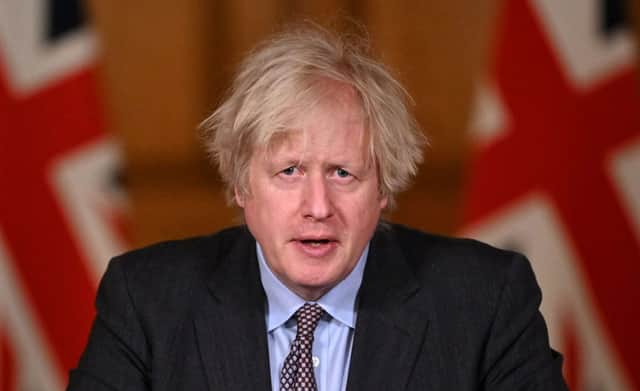Boris Johnson is ‘very optimistic’ all Covid restrictions will be lifted on 21 June - but warns it’s not guaranteed


Prime Minister Boris Johnson has said he is “very optimistic” that all England’s Covid-19 restrictions will be able to be fully lifted on 21 June, but warned “nothing can be guaranteed”.
Mr Johnson set out his cautious roadmap to relaxing lockdown rules on Monday (22 February) with a four-step plan.
‘Continue to be prudent’
Advertisement
Advertisement
The gradual easing of rules will be done in stages with the aim of removing all restrictions on social contact, businesses and events by 21 June, although this will depend on several key tests, including the success of the vaccine rollout and keeping infection rates at a manageable level to avoid pressure on the NHS.
The Prime Minister has urged the nation to be “prudent” by continuing to follow the rules and insisted the four-step plan will be guided by “data not dates”.
Speaking about the likelihood of lifting all restrictions by 21 June during a visit to Sedgehill Academy in Lewisham, south-east London, Mr Johnson said: “I’m hopeful but obviously nothing can be guaranteed and it all depends on the way we continue to be prudent and continue to follow the guidance in each stage.
“Genuinely, because of the immense possibilities of the rollout, because science has given us this way of creating a shield around our population, we can really look at that June 21 date with some optimism.
“I’m very optimistic that we’ll be able to get there.”
Possible vaccine passports
Advertisement
Advertisement
Mr Johnson also announced that senior minister Michael Gove will lead a review into the possible use of vaccine passports to allow people to access currently closed venues, such as pubs and theatres.
However, he acknowledged that people who cannot have a vaccine for medical reasons can not be discriminated against, and added that some may also “generally refuse to have one”, albeit on mistaken grounds.
He said that “fervent libertarians” will reject the premise of vaccine passports or “Covid status certificates”, but added the use of such documents needs to be investigated.
Mr Gove is to lead a review to get “the best scientific, moral, philosophical, ethical viewpoints on it and work out a way forward”.
Advertisement
Advertisement
The chairman of the Covid Recovery Group of lockdown-sceptical Tory MPs, Mark Harper, said the country should not be “held back” by those who refuse the vaccine, with uptake of more than 90 per cent among the groups that have been offered it.
However, Dr Mike Tildesley, a member of Government advisory group SPI-M, warned that failure to ensure all communities are protected could lead to a new wave of infections.
Speaking on BBC Radio 4’s Today programme, he said: “We know there are certain areas, particularly inner city areas, deprived areas, where vaccine uptake is not as high.
“And that actually poses a real risk that we are not capturing currently in those models – if we do get these pockets of infection then it could be that actually we could have a more significant risk.
Advertisement
Advertisement
“So actually it’s really important that we get the vaccines out to those deprived communities to prevent a potential wave of infections occurring as we do unlock.”
Health Secretary Mr Hancock has said the government is working “incredibly hard” to ensure as many people as possible receive the vaccine and issued a renewed appeal for people to get the jab when they are invited.
He said: “We want to see that vaccine uptake go as high as possible. But it’s absolutely on all of us to come forward and get the vaccine. It’s the right thing to do.”